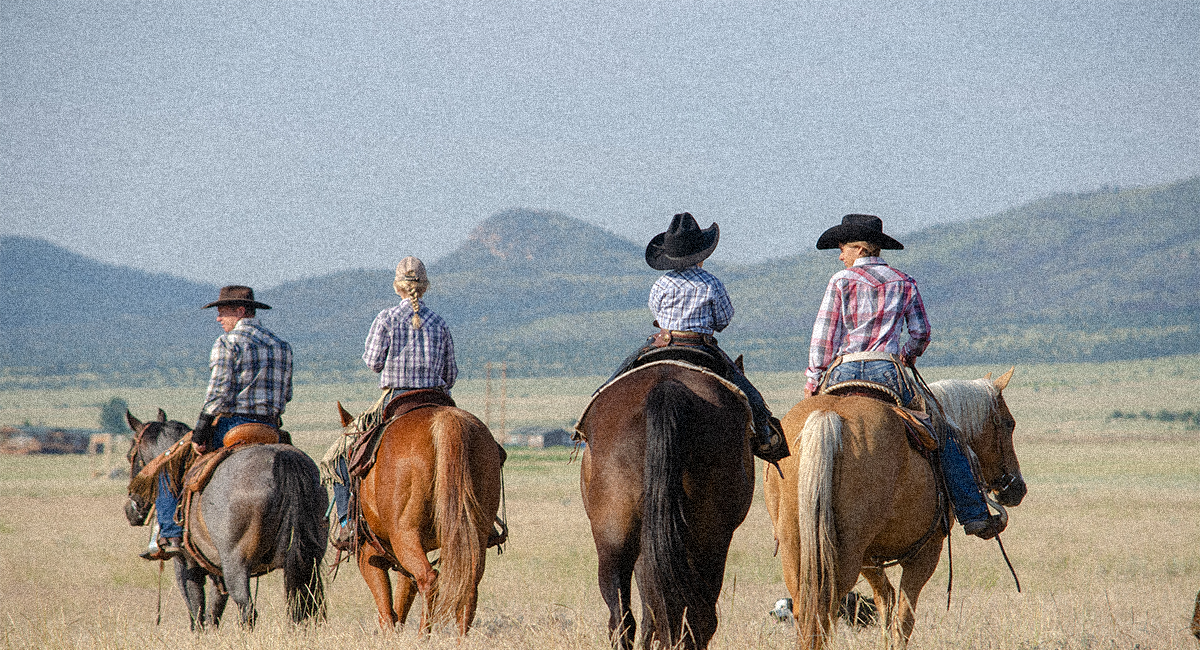Meet Kelley Sheiss
“Cattle producers are unique and are my favorite types of people because they have grit, but they will always tip their hat to you and work together,” said Kelley Sheiss, part owner of Sheiss Livestock and Indiana Beef Cattle Association (IBCA) president.
Kelley is a first-generation cattle producer farming with her husband, Donnie. Donnie’s family started farming in Indiana in 1992. Their son Dillon, who currently attends Iowa State University, plans to make the farm his home one day. Sheiss Livestock is a diversified cow-calf farm focused on raising show cattle for youth exhibitors while growing row crops and other livestock as well.
Kelley grew up in the suburbs of Lancaster, Pennsylvania, and didn’t know anything about animal agriculture. Her first exposure to the cattle industry was when she and her father stumbled upon a 4-H cattle show, and Kelley knew immediately she was missing out on something she was meant to do. Kelley had always loved animals, which led her to pursue a veterinary degree from Pennsylvania State University, but she switched gears and earned a degree in animal science. She was a part of the school’s livestock judging team, where she and Donnie competed together as teammates.
“When I left to go to college to pursue an ag degree, I left most of my life before that behind because I went to a high school full of students who didn’t understand wanting to be in ag,” Kelley said.
After graduation, Kelley didn’t immediately have a job, but doors opened for her that she’d been dreaming of. She had interned with the Pennsylvania Beef Council, and two weeks after graduating, a position there opened.
“I was not their first choice; I am not even sure I was their second choice, but whatever choice I was, I got the job,” Kelley laughed.
Later, an opportunity Kelley couldn’t pass up arose with the National Livestock and Meat Board in Chicago. So, Kelley packed her entire life into her car and moved to Chicago for her dream job. She remained in touch with Donnie and visited his family’s farm on the weekends to escape the busy city. They got married in 1996, and Kelley left her job with the Meat Board to move to Indiana. Today, she works on the farm full-time and is setting goals to expand their cow herd.
“Where we are today and the way we are structuring and operating things is really geared for Dillon’s succession of the operation,” Kelley shared.
Something setting Kelley apart from many of her peers is that she didn’t grow up around livestock, so she knows what it is like to be a consumer, disconnected from agriculture, with questions and concerns about cattle handling and beef nutrition. And this gives Kelley a leg-up as she shares her story, and her experiences demonstrated how crucial this is to do. In 2017, the Sheisses and other livestock farmers in their area were persistently pursued by environmental and animal rights’ activists, and they had to defend their way of life.
“It got contentious to the point that there were people coming in from outside the county, outside the state, who were sitting at the end of our driveway, taking pictures of what we were doing, calling our livelihood into question,” Kelley said. “For three years, our community was the testing ground for what activist groups were trying to do throughout Indiana, and we had to have a voice.”
As IBCA president, Kelley knows state and national beef associations are critical allies giving a voice to producers and protecting her family’s business — a business that will one day be passed to further generations.
“I have a unique perspective of once being a staff member, and now I am on the other side of the equation as a producer. I learned to appreciate the value of producers across the country, so when I landed in Indiana and became a producer, I sought out a way to be involved with our association,” Kelley said.
Through membership in organizations like IBCA and NCBA, Kelley has made lasting connections that helped her grow as a cattle farmer. Being a part of these groups removes feelings of isolation that people in agriculture can experience. As a smaller producer with fewer than 100 head of cattle, Kelley feels just as connected and valued amongst these organizations as her peers with larger operations in the West.
“All those people along the way had an impact on me, and I always say there’s a lot of people who took a chance on me because I wasn’t an ag girl. They had to invest a little more time in me because my knowledge curve was lengthier than others,” she reflected.
Kelley and her family are expanding their herd, converting row-crop land to grazing acreage, improving genetics, and raising more heifers and steers for youth. For Kelley, it is rewarding to put a quality steer into the hand of a young showman, but it is even more exciting to see them select a heifer that will be the foundation of their own breeding herd.
As Kelley put it, “It provides a mentorship and partnership opportunity that supports future generations for our industry.”
